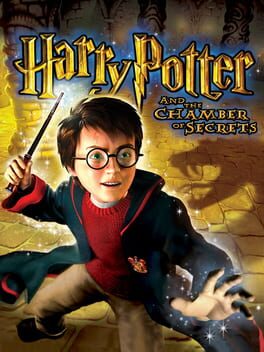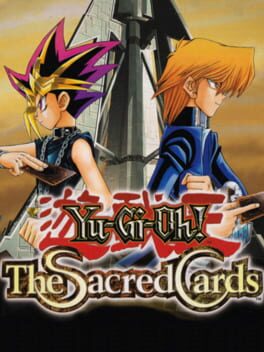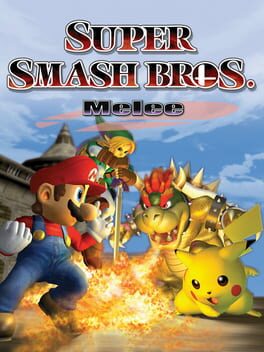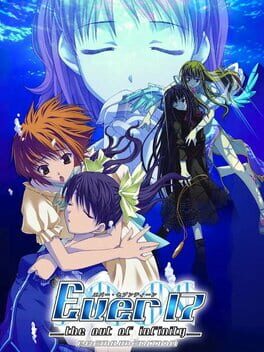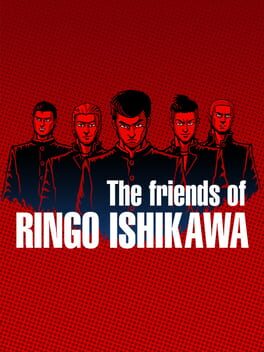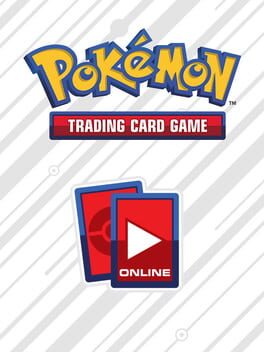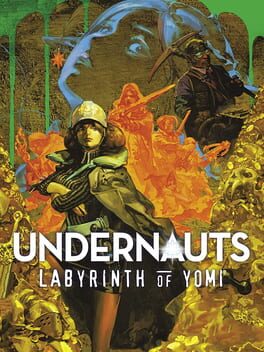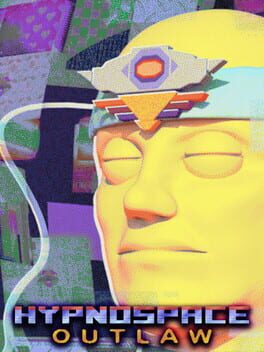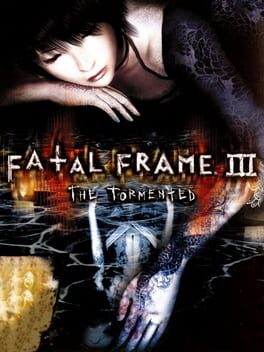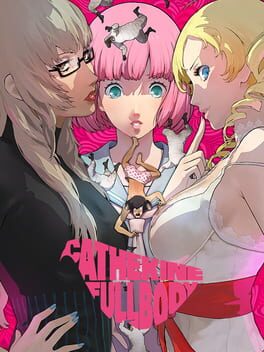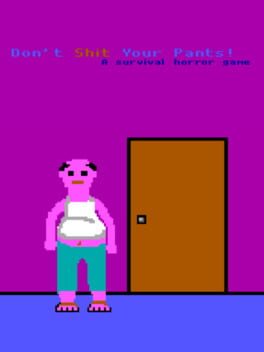alagoa
BACKER
115 Reviews liked by alagoa
Baby's First RPG, and the first Game Boy Color game I ever owned.
sometime in 2006, my local target had a stockpile of these for dirt cheap. they must have been there for years. would have been a hard sell at first, given that there was a shiny new GBA version on the shelves at the same time. in the years between the game’s release and my chancing upon it, the GBA copies were all snatched up. only the dusty GBC boxes remained.
(in retrospect I can say: those poor kids that got the GBA version! they missed out on the real deal)
my young eyes lit up as I noticed them on the clearance rack. before I could trail too far behind my mom and the shopping cart, I pulled the arm of her sweater. I pointed up at the my then-favorite little wizard guy. the boxes were lined up on the top shelf, and my growth spurt was still a number of years out. she looked over the box. the label in the corner said it would work on my Game Boy Advance.
"that's the one you've got, right?"
I enthusiastically confirmed.
my mom was a librarian, and had already encouraged me in reading the first three Harry Potter books. JK Rowling wasn't a Public Sicko yet, so it was still morally okay to be a fan. I had been going cover to cover on those early books for as long as I knew how to read. by this time I had already worn a Harry Potter costume for Halloween at least twice. our DVD copy of Chamber of Secrets was used with such regularity that the cardboard sleeve for its case had begun to warp from the oils of my grubby little child fingers. if my mom was ever going to buy me a game months removed from Christmas or my birthday, it was going to be this one. to my great joy, she did!
little did I know playing it was going to be as much of a learning experience as reading my first novel.
knowing only games where one button jumped and the other button punched, the menus and numbers of turn based combat were completely alien to me. "grinding" was not in my lexicon. I brutishly forced my way through. "don't walk into the glowing beans" was my strategy for winning, which complicated things when my little friend Harry was never strong enough to defeat bosses with the basic attack spell alone. pokemon barely touched my childhood; this was my equivalent to fighting the elite four with nothing but tackles.
as my elementary years passed, I kept going back to the big translucent cartridge in my bag full of GBA games. every time I did, I had figured out something new about gameplay, or menu navigation, or like, basic math. I got to experience it anew every time. I still do now, replaying the game in an emulator as a studied and grown-up RPG enjoyer.
(sidenote: even now, all 8-bit music sounds to me like Chamber of Secrets. its status as the GBC's final game means it was the endpoint for that sound chip; the final compositions for a format then thirteen years old. they do not disappoint. those tracks are vivid, draining every last drop of auditory depth out of that ancient little game box. while first exploring Raya Lucaria in Elden Ring earlier this year, I put on these old wizard school tunes. it was bliss. good work, Ian Stocker!)
sometime in 2006, my local target had a stockpile of these for dirt cheap. they must have been there for years. would have been a hard sell at first, given that there was a shiny new GBA version on the shelves at the same time. in the years between the game’s release and my chancing upon it, the GBA copies were all snatched up. only the dusty GBC boxes remained.
(in retrospect I can say: those poor kids that got the GBA version! they missed out on the real deal)
my young eyes lit up as I noticed them on the clearance rack. before I could trail too far behind my mom and the shopping cart, I pulled the arm of her sweater. I pointed up at the my then-favorite little wizard guy. the boxes were lined up on the top shelf, and my growth spurt was still a number of years out. she looked over the box. the label in the corner said it would work on my Game Boy Advance.
"that's the one you've got, right?"
I enthusiastically confirmed.
my mom was a librarian, and had already encouraged me in reading the first three Harry Potter books. JK Rowling wasn't a Public Sicko yet, so it was still morally okay to be a fan. I had been going cover to cover on those early books for as long as I knew how to read. by this time I had already worn a Harry Potter costume for Halloween at least twice. our DVD copy of Chamber of Secrets was used with such regularity that the cardboard sleeve for its case had begun to warp from the oils of my grubby little child fingers. if my mom was ever going to buy me a game months removed from Christmas or my birthday, it was going to be this one. to my great joy, she did!
little did I know playing it was going to be as much of a learning experience as reading my first novel.
knowing only games where one button jumped and the other button punched, the menus and numbers of turn based combat were completely alien to me. "grinding" was not in my lexicon. I brutishly forced my way through. "don't walk into the glowing beans" was my strategy for winning, which complicated things when my little friend Harry was never strong enough to defeat bosses with the basic attack spell alone. pokemon barely touched my childhood; this was my equivalent to fighting the elite four with nothing but tackles.
as my elementary years passed, I kept going back to the big translucent cartridge in my bag full of GBA games. every time I did, I had figured out something new about gameplay, or menu navigation, or like, basic math. I got to experience it anew every time. I still do now, replaying the game in an emulator as a studied and grown-up RPG enjoyer.
(sidenote: even now, all 8-bit music sounds to me like Chamber of Secrets. its status as the GBC's final game means it was the endpoint for that sound chip; the final compositions for a format then thirteen years old. they do not disappoint. those tracks are vivid, draining every last drop of auditory depth out of that ancient little game box. while first exploring Raya Lucaria in Elden Ring earlier this year, I put on these old wizard school tunes. it was bliss. good work, Ian Stocker!)
Melee's knockback formula is like my E=MC².
The beautiful, dense web of the state machine behind its character controller is like my Starry Night.
So many things went right with Melee. The open ended damage percent and ring-out systems interact gorgeously with the way the game treats each character as its own physics object moving through the simulation. Flexible mechanics like wavedashing, DI, SDI, the depletable analog shield, and the tech system create near limitless potential for expression in offense, defense, and even basic movement. A single jump in Melee has 5 separate decisions baked into it that determine where you'll land. The open ended nature of the game combined with its extremely high execution ceiling reward dedication to technique, highly nuanced matchup strategy, and situational awareness like perhaps no other game.
20 year Melee veterans will boot up tonight and pull off some wild shit they've never seen before, and if pressed about it they'd just tell you "I knew it would work."
It is the intuition-based fighting game.
The beautiful, dense web of the state machine behind its character controller is like my Starry Night.
So many things went right with Melee. The open ended damage percent and ring-out systems interact gorgeously with the way the game treats each character as its own physics object moving through the simulation. Flexible mechanics like wavedashing, DI, SDI, the depletable analog shield, and the tech system create near limitless potential for expression in offense, defense, and even basic movement. A single jump in Melee has 5 separate decisions baked into it that determine where you'll land. The open ended nature of the game combined with its extremely high execution ceiling reward dedication to technique, highly nuanced matchup strategy, and situational awareness like perhaps no other game.
20 year Melee veterans will boot up tonight and pull off some wild shit they've never seen before, and if pressed about it they'd just tell you "I knew it would work."
It is the intuition-based fighting game.
And so I continue my journey through Uchikoshi's writing credits in a kind of reverse order.
I was a bit surprised how much I enjoyed this one. The first hour confirmed that this was very much an "early" work of his, and I would go so far as to call it something of a 999 prototype. Having played 5 of his games in the span of a year, I've noticed that he has a set of battle tested plot devices he's been polishing up iteratively. It could feel like I'm reading the same story over and over, but in application they're more like structural elements of the story rather than the twists. In a way it feels like sci-fi chemistry where he takes a set of known hooks and mixes them together in different ways to see how they interact.
Here with Ever 17, what's interesting to me is that the "thriller" element of the Zero Escape and Somnium Games is gone. Instead we get a quieter, more character driven drama. There's still definitely the paranormal/sci-fi mystery element and more exciting moments, but not so much the pushing tension the later scenarios lean into. Less reliance on suspicion and shadowy antagonists and more gradual and mostly cooperative struggles against nature.
What I ended up liking the most about this title was what I've generally found to be a weakness in Zero Escape/Somnium: characters. The cast here is nearly as flashy, quirky, and immediately rememberable — there's no Dates or Clovers or Aibas — but they feel more grounded because of that, and their dialogue still has plenty of chracter. Everyone has a decent range of roles they play and their own ways of playing them.
The characters also get the time they need for their arcs to build and for you to get attached to each by the end. And in direct contrast to my issues with later Uchikoshi titles, you actually get some solid closure with the characters by the end. Not sure how that quality of his stories went so haywire with Zero Escape.
That said, the pacing here can feel a tad more sluggish due to a less refined story. For the most part it glides along pretty well, especially since they wisely made the skip feature work on "similar" scenes and not just the exact scenes you've read — for example, if someone delivers a bit of exposition in one scenario, the smart skip will generally let you skip that same exposition in another route, even if given by a different character. On occasion though, there are still a few scenes that will feel road-bumpy. Getting to all the "good" ends and through the true route took me about 19-20 hours so it still felt like a pretty light read (for me).
As a sci-fi fan I should also mention how those elements are used, as I was quite entertained by the set of topics explored. There were some well worn matters, but also a lot of ideas that now feel kind of cooly retro and even ones that feel more uncommon (at least in my reading). I think there was a lot of good detail paid to water and diving physics without getting too caught up with itself. It was lighter with the supernatural/occult conspiracy elements than ZE. Enough to make it fun but not so much that it muddled up the hard sci-fi elements.
From a technical level, there's not much more to say than that this is an early 00s VN but on the more fully featured side. It should be explicitly noted, though, that this is a strictly text VN unlike Uchikoshi's later works. So anyone hoping for more puzzle gameplay will be left wanting here.
On that note, I would call this a solid recommendation for general VN fans, and particularly for readers looking for character driven sci-fi dramas or early 00s ocean themed stories. Not the most polished work, but much more solid than I expected. And its more matte finish is actually part of its appeal.
I was a bit surprised how much I enjoyed this one. The first hour confirmed that this was very much an "early" work of his, and I would go so far as to call it something of a 999 prototype. Having played 5 of his games in the span of a year, I've noticed that he has a set of battle tested plot devices he's been polishing up iteratively. It could feel like I'm reading the same story over and over, but in application they're more like structural elements of the story rather than the twists. In a way it feels like sci-fi chemistry where he takes a set of known hooks and mixes them together in different ways to see how they interact.
Here with Ever 17, what's interesting to me is that the "thriller" element of the Zero Escape and Somnium Games is gone. Instead we get a quieter, more character driven drama. There's still definitely the paranormal/sci-fi mystery element and more exciting moments, but not so much the pushing tension the later scenarios lean into. Less reliance on suspicion and shadowy antagonists and more gradual and mostly cooperative struggles against nature.
What I ended up liking the most about this title was what I've generally found to be a weakness in Zero Escape/Somnium: characters. The cast here is nearly as flashy, quirky, and immediately rememberable — there's no Dates or Clovers or Aibas — but they feel more grounded because of that, and their dialogue still has plenty of chracter. Everyone has a decent range of roles they play and their own ways of playing them.
The characters also get the time they need for their arcs to build and for you to get attached to each by the end. And in direct contrast to my issues with later Uchikoshi titles, you actually get some solid closure with the characters by the end. Not sure how that quality of his stories went so haywire with Zero Escape.
That said, the pacing here can feel a tad more sluggish due to a less refined story. For the most part it glides along pretty well, especially since they wisely made the skip feature work on "similar" scenes and not just the exact scenes you've read — for example, if someone delivers a bit of exposition in one scenario, the smart skip will generally let you skip that same exposition in another route, even if given by a different character. On occasion though, there are still a few scenes that will feel road-bumpy. Getting to all the "good" ends and through the true route took me about 19-20 hours so it still felt like a pretty light read (for me).
As a sci-fi fan I should also mention how those elements are used, as I was quite entertained by the set of topics explored. There were some well worn matters, but also a lot of ideas that now feel kind of cooly retro and even ones that feel more uncommon (at least in my reading). I think there was a lot of good detail paid to water and diving physics without getting too caught up with itself. It was lighter with the supernatural/occult conspiracy elements than ZE. Enough to make it fun but not so much that it muddled up the hard sci-fi elements.
From a technical level, there's not much more to say than that this is an early 00s VN but on the more fully featured side. It should be explicitly noted, though, that this is a strictly text VN unlike Uchikoshi's later works. So anyone hoping for more puzzle gameplay will be left wanting here.
On that note, I would call this a solid recommendation for general VN fans, and particularly for readers looking for character driven sci-fi dramas or early 00s ocean themed stories. Not the most polished work, but much more solid than I expected. And its more matte finish is actually part of its appeal.
The game starts with a battle inside a train. In the aftermath, the beaten thugs stay on the floor until the train stops. Once off, another fight begins. After that, you proceed to the next screen and another fight begins. This one has no end, just a fade to black and a title drop. No catharsis on any punch or on any victory. After that, another message. A year has gone by. The same gang feud is still going on and getting worse.
After this skip, the first thing you see is Ringo's professor telling him that the last days of high school are coming up, and it’s time to decide where to head on with your life. In here, the already decontextualized beat’em up setting gains a new dimension when noticing that the violence is not just non-cathartic, but a background. Some gangs fight each other, some others want to fight you, you can run away from any of them and if you get beat up there is no fail state, just another action in the world and waking at home after some rest.
This may be a disheartening view of the world just because, but when examining your own actions, it becomes evident that there is no other way, or not easily so. You have no financial support and will starve for most of the time, at the very least on the first days. Your only income source is to pick money from beaten thugs, by your own hand or not, and it’s easy to assume that most of the teenagers around are in a very similar place.
The means for covering basic necessities is just a small part, since Ringo’s life is explored in all its aspects, since he wakes until he goes to sleep. Here it is interesting to see his approach to hobbies or interests like literature, studies, or even exercise, be it through fights or through training with some masters. In any case, the result of taking interest in those topics will be some numbers going up. Simple abstraction or not, intentional or not, despite whether Ringo is interested in what he is doing or not, what remains is a cold number, an objective. This could be compared with how modern Persona games free time actions help you build stats making every decision a strategic decision, at least partially, but here the answer is more vague, or directly non-existent, there is no benefit to what to do or not to do because there are no good or bad outcomes. The usual short length on most events, just a few lines of dialogue, help to convey both the fugacity and sudden impact of the small moments and their relative insignificance on the bigger picture when searching for a change.
The game takes influence from Yakuza and Shenmue, and while it’s easy to see where it comes from, there is a major difference. There is no immediate catharsis on the infinite time for side activities like in Yakuza and no real objective to struggle for like in Shenmue. If anything, it looks more like what San Andreas would be if there were no missions, just going around the neighborhood as the days go by. But the days will eventually end. To me, the most similar game to Ringo Ishikawa is Boku no Natsuyasumi.
Of course, with a very different tone, there is a similar sense in getting up every day and going around from one screen to another looking for things to do in the city. Also, at least in my case, a certain routine started to appear, making each day like a small poetry exercise. I liked to go to some places at some time, to repeat some activities, to create my own daily plan in both games. In both, the intention is to get the better of every day. In Boku no Natsuyasumi, the conclusion was that even the days when nothing happened were as good as any other. In Ringo Ishikawa, even when something happens, the sense is that of still being lost, and then marching another day trying to find something.
Here is a lot to praise about how the map and the scenarios are constructed. Even though the tall infinite buildings can be seen in the background of many screens, the feeling when running around is that the place is too small and that there is a kind of life that cannot be escaped whatever you do.
If Kunio-kun and the eighties manga school gangster aesthetic suggest some sense of freedom through the sheer strength of youth, Ringo Ishikawa uses the template to illustrate the opposite, the end of the fantasy and the realization of how hard it is for a teenager to escape from where they are, or if it is even possible.
I went to school every day because I knew my friends were there.
https://www.youtube.com/watch?v=MTeK48Z2HuA
After this skip, the first thing you see is Ringo's professor telling him that the last days of high school are coming up, and it’s time to decide where to head on with your life. In here, the already decontextualized beat’em up setting gains a new dimension when noticing that the violence is not just non-cathartic, but a background. Some gangs fight each other, some others want to fight you, you can run away from any of them and if you get beat up there is no fail state, just another action in the world and waking at home after some rest.
This may be a disheartening view of the world just because, but when examining your own actions, it becomes evident that there is no other way, or not easily so. You have no financial support and will starve for most of the time, at the very least on the first days. Your only income source is to pick money from beaten thugs, by your own hand or not, and it’s easy to assume that most of the teenagers around are in a very similar place.
The means for covering basic necessities is just a small part, since Ringo’s life is explored in all its aspects, since he wakes until he goes to sleep. Here it is interesting to see his approach to hobbies or interests like literature, studies, or even exercise, be it through fights or through training with some masters. In any case, the result of taking interest in those topics will be some numbers going up. Simple abstraction or not, intentional or not, despite whether Ringo is interested in what he is doing or not, what remains is a cold number, an objective. This could be compared with how modern Persona games free time actions help you build stats making every decision a strategic decision, at least partially, but here the answer is more vague, or directly non-existent, there is no benefit to what to do or not to do because there are no good or bad outcomes. The usual short length on most events, just a few lines of dialogue, help to convey both the fugacity and sudden impact of the small moments and their relative insignificance on the bigger picture when searching for a change.
The game takes influence from Yakuza and Shenmue, and while it’s easy to see where it comes from, there is a major difference. There is no immediate catharsis on the infinite time for side activities like in Yakuza and no real objective to struggle for like in Shenmue. If anything, it looks more like what San Andreas would be if there were no missions, just going around the neighborhood as the days go by. But the days will eventually end. To me, the most similar game to Ringo Ishikawa is Boku no Natsuyasumi.
Of course, with a very different tone, there is a similar sense in getting up every day and going around from one screen to another looking for things to do in the city. Also, at least in my case, a certain routine started to appear, making each day like a small poetry exercise. I liked to go to some places at some time, to repeat some activities, to create my own daily plan in both games. In both, the intention is to get the better of every day. In Boku no Natsuyasumi, the conclusion was that even the days when nothing happened were as good as any other. In Ringo Ishikawa, even when something happens, the sense is that of still being lost, and then marching another day trying to find something.
Here is a lot to praise about how the map and the scenarios are constructed. Even though the tall infinite buildings can be seen in the background of many screens, the feeling when running around is that the place is too small and that there is a kind of life that cannot be escaped whatever you do.
If Kunio-kun and the eighties manga school gangster aesthetic suggest some sense of freedom through the sheer strength of youth, Ringo Ishikawa uses the template to illustrate the opposite, the end of the fantasy and the realization of how hard it is for a teenager to escape from where they are, or if it is even possible.
I went to school every day because I knew my friends were there.
https://www.youtube.com/watch?v=MTeK48Z2HuA
Por algum caralhos de motivo tenho um tesão absurdo por RPGs com temática contemporânea; sei lá, talvez seja porque é muito mais foda ver um Salaryman com um terno estiloso carregando uma fodenda Katana do que ver um maluco entupido de alumínio dos pés à cabeça portando uma pica metálica de 5 metros de comprimento. Undernauts é um desses jogos. Pegando como temática Japão ultracapitalista final dos anos 1970, Undernauts retrata a luta e a paixão de todo empregado em se tornar um executivo só para poder encher o todo de cocaína. Este pequeno proletariado sonhador vagueia pelo labirinto chamado Yomi, uma estrutura massiva que surgiu em Tokyo, em busca de um minério chamado Argen, uma valiosa fonte de energia que foi capaz de trazer uma série de avanços tecnológicos ao período. O problema, bem, tem uma fodenda horda de bichos querendo comer (literalmente) o seu cu. E a solução foi relativamente simples: sheipar o empregado de Whey para ser a caralha de um super-homem, e fazer ele lançar uns poderzinhos picas. Chamados de Undernauts, esses empregados possuem um único objetivo: minerar o máximo de Argen possível para obter um lucro altíssimo. Dessa merda toda surgem as corporações, que terceirizadas ou não, são responsáveis pela exploração e pelos Undernauts. Com o contexto preestabelecido, assumimos a função de um Undernauts customizável a sua maneira, que trabalha sob a corporação Cassandra. É a primeira vez que a empresa explora por conta própria Yomi, tendo a partilha do Distrito 99 para eles. Mas claro, a primeira vez sempre vai ser uma merda, e no final acabamos ficando preso em Yomi após um dos acampamentos de uma outra corporação ter sido massacrado por uma criança de traje vermelho comunista. Em síntese, é Strange Journey de novo, e você, como jogador, se fodeu novamente.
Eu não estou zoando com a parte do Strange Journey, esse jogo é estupidamente inspirado nele. Só para ter uma noção, todas as vezes que me viram jogando esse jogo me perguntaram: “É SMT?”. A resposta era: “Não, mas a gostosa da sua mãe é minha”. E é compreensível essa pergunta; a estética, a trilha sonora, a atmosfera, são muito, mais muito, SMT-like – ou melhor Strange-Journey-like. A princípio parece ser um aspecto ruim: um jogo se inspirar fortemente em um outro geralmente é um sinal de falta de originalidade, no sentido de ter aspectos que o tornem um jogo único – algo que o torna ele mesmo - mesmo se inspirando em uma outra obra. Entretanto, surpreendentemente Undernauts é estupidamente original. Mesmo tendo aquela vibe Strange Journey, Undernauts consegue perpassar uma sensação de singularidade, de ser uma obra única dentre os diversos JRPGs do mercado. O melhor exemplo disso está em sua trilha sonora, que possui uma pegada orquestral e uma filosofia similar ao de Strange Journey – o de construir uma sensação de solidão, e de que você está explorando algo além de sua compreensão -, porém ao mesmo tempo consegue ser absurdamente original, e construir uma personalidade própria. O que quero dizer é: Undernauts, mesmo sendo extremamente baseado em Strange Journey, é um jogo único.
Aproveito esse momento para masturbar um dos aspectos da história que mais gosto da obra: a pegada séria que tem. Não sou aquele tipo de pessoa que fica argumentando sobre a maturidade de uma obra, no sentido de que: “Ah, minha obra é muito séria pq tem diálogos muito sérios, e violências muito sérias”. Particulamente, se você é uma dessas pessoas, busque ajuda, sério mano bagulho, que retardado do caralho. Sempre vejo uma obra sob um contexto singular; não busco menosprezar só por ter uma história menos séria, ou por ser mais bobo. E do mesmo modo não subestimo nenhuma obra, tento analisa-las na mesma prorporção, buscando sempre compreender as suas peculiaridades. Porém, sempre há um ou outro aspecto-singular-peculiar-e-os-caralhos-a-quatro que gosto (LOL, imagina tentar ser imparcial). Dentre eles gosto bastante de obras que tentam ser sérias, sem forçar um edgeness fodido. FF Tactics e Triangle Strategy são exemplo de obras assim, e Undernauts também é uma delas. Fico surpreso de ver essa pegada séria sem ser edge, porque o último jogo que joguei da Experience – developer do jogo – tinha fanservice pra caralho, então meio que criei essa expectativa de undernauts ser meio Edge forçado.
Entretanto, puta merda, tem uns momentos que esse jogo tenta, MAS TENTA, dialogar com o jogador. São momentos de Player Expression muito vazios, que tentam agregar algo para a experiência, mas no final só passa uma sensação de “cringei com esse jogo”. É umas paradas tipo: “Oh, você prefere sacrificar a si mesmo por alguém, ou pela pessoa que você ama” e eu sempre escolhia a resposta com cara e coroa porque simplesmente era algo insignificante. Isso foi um exemplo bem a grosso modo, mas quero que você me entenda como eu cringei em certos momentos do jogo. Felizmente não foi toda hora, e tem alguns momentos que até funciona; mas puta que pariu como essa merda me incomoda.
Claro, não posso me esquecer, a caralha da gameplay. Undernauts, em questão de mecânicas de RPG, é um jogo bem consistente e bem elaborado. É interessante ver uma boa abordagem do sistema looter em um jogo, bem como ver um combate aleatório articulado de forma a trazer uma experiência mais prazerosa e divertida. O combate foi uma surpresa e tanto; não esperava um sistema tão impactante como o Switch Boost. A primeira vista, Switch Boost parece ser um sistema bem fodase; algo que simplesmente só existe. Porém, supreendentemente este é um sistema que agrega pra caralho à experiência, já que consegue tornar os combates bem fluídos, e consegue criar um ritmo de exploração menos maçante graças a maneira como ele otimiza os encontros. Foi uma sacada brilhante, e é algo que torna Undernauts divertido pra caralho.
Para além desses sistemas, Undernauts possui uma exploração única baseada numa filosofia “você é quem cria o seu caminho”. Tá, você não exatamente CRIA o seu caminho, mas dá aquela sensação de maleabilidade. Constantemente o jogo nos impõem caminhos que devem ser abridos ou por uma porta, ou por uma escada, ou por uma ponte. É algo aparentemente simples, basicamente é só craftar uma dessas budegas e pronto. Todavia, a maneira como o Level Design é articulado para isso é absurda. Constantemente nos vemos abrindo novos caminhos, e explorando novas áreas; é uma exploração bem gostosa e recompensadora. Indo além, Undernauts também nos dá a possibilidade de modificar aspectos do Level Design, como adicionar um encontro contra um inimigo em certa área, ou até mesmo apagar um encontro. Sabe aquele chão chato que te dá dano caso passe? Relaxa, você tem como eliminar o dano dele um item. Essa maleabilidade do cenário provavelmente é a cereja do bolo da obra; principalmente se você ama exploração Undernauts é um puta jogo para você colega.
Apesar disso, o sistema de progressão não é tão interessante. Eu AMO sistema de classes, ainda mais quando envolve promoção, e nesse jogo é uma parada bem broxante; a promoção em nenhum momento te dá a sensação de progressão. Não só isso, mas a falta de itens de ressureição é de foder. Porém, são fatores que você vai se acostumando, e vão deixando de serem uma pedra no caminho.
Sendo bem honesto, Undernauts é um jogo perfeito para quem quer começar a jogar a fundo Dungeon Crawlers; é uma experiência bem tranquila e bem divertida a ponto de engajar o jogador a explorar esse universo de Dungeon Crawlers japoneses em primeira pessoa.
Em conclusão, Undernauts é um excelente Dungeon Crawler. Uma coisa que posso falar que me senti decepcionado é com o tema dele. Essa pegada anti-capitalista é interessante, tem umas ideias maneiras, mas poderia ter sido melhor articulada. Mas sem dúvida o ápice da experiência de Undernauts está em sua exploração. Para concluir com chave de outro:
⠄⠄⣿⣿⣿⣿⠘⡿⢛⣿⣿⣿⣿⣿⣧⢻⣿⣿⠃⠸⣿⣿⣿⠄⠄⠄⠄⠄
⠄⠄⣿⣿⣿⣿⢀⠼⣛⣛⣭⢭⣟⣛⣛⣛⠿⠿⢆⡠⢿⣿⣿⠄⠄⠄⠄⠄
⠄⠄⠸⣿⣿⢣⢶⣟⣿⣖⣿⣷⣻⣮⡿⣽⣿⣻⣖⣶⣤⣭⡉⠄⠄⠄⠄⠄
⠄⠄⠄⢹⠣⣛⣣⣭⣭⣭⣁⡛⠻⢽⣿⣿⣿⣿⢻⣿⣿⣿⣽⡧⡄⠄⠄⠄
⠄⠄⠄⠄⣼⣿⣿⣿⣿⣿⣿⣿⣿⣶⣌⡛⢿⣽⢘⣿⣷⣿⡻⠏⣛⣀⠄⠄
⠄⠄⠄⣼⣿⣿⣿⣿⣿⣿⣿⣿⣿⣿⣿⣿⣦⠙⡅⣿⠚⣡⣴⣿⣿⣿⡆⠄
⠄⠄⣰⣿⣿⣿⣿⣿⣿⣿⣿⣿⣿⣿⣿⣿⣿⣷⠄⣱⣾⣿⣿⣿⣿⣿⣿⠄
⠄⢀⣿⣿⣿⣿⣿⣿⣿⣿⣿⣿⣿⣿⣿APROVADO⣿⣿⣿⣿⣿⠄
⠄⣸⣿⣿⣿⣿⣿⣿⣿⣿⣿⣿⣿⣿⣿⣿⡿⠣⣿⣿⣿⣿⣿⣿⣿⣿⣿⠄
⠄⣿⣿⣿⣿⣿⣿⣿⣿⣿⣿⣿⣿⣿⠿⠛⠑⣿⣮⣝⣛⠿⠿⣿⣿⣿⣿⠄
⢠⣿⣿⣿⣿⣿⣿⣿⣿⣿⣿⣿⣶⠄⠄⠄⠄⣿⣿⣿⣿⣿⣿⣿⣿⣿⡟⠄
6/10
Eu não estou zoando com a parte do Strange Journey, esse jogo é estupidamente inspirado nele. Só para ter uma noção, todas as vezes que me viram jogando esse jogo me perguntaram: “É SMT?”. A resposta era: “Não, mas a gostosa da sua mãe é minha”. E é compreensível essa pergunta; a estética, a trilha sonora, a atmosfera, são muito, mais muito, SMT-like – ou melhor Strange-Journey-like. A princípio parece ser um aspecto ruim: um jogo se inspirar fortemente em um outro geralmente é um sinal de falta de originalidade, no sentido de ter aspectos que o tornem um jogo único – algo que o torna ele mesmo - mesmo se inspirando em uma outra obra. Entretanto, surpreendentemente Undernauts é estupidamente original. Mesmo tendo aquela vibe Strange Journey, Undernauts consegue perpassar uma sensação de singularidade, de ser uma obra única dentre os diversos JRPGs do mercado. O melhor exemplo disso está em sua trilha sonora, que possui uma pegada orquestral e uma filosofia similar ao de Strange Journey – o de construir uma sensação de solidão, e de que você está explorando algo além de sua compreensão -, porém ao mesmo tempo consegue ser absurdamente original, e construir uma personalidade própria. O que quero dizer é: Undernauts, mesmo sendo extremamente baseado em Strange Journey, é um jogo único.
Aproveito esse momento para masturbar um dos aspectos da história que mais gosto da obra: a pegada séria que tem. Não sou aquele tipo de pessoa que fica argumentando sobre a maturidade de uma obra, no sentido de que: “Ah, minha obra é muito séria pq tem diálogos muito sérios, e violências muito sérias”. Particulamente, se você é uma dessas pessoas, busque ajuda, sério mano bagulho, que retardado do caralho. Sempre vejo uma obra sob um contexto singular; não busco menosprezar só por ter uma história menos séria, ou por ser mais bobo. E do mesmo modo não subestimo nenhuma obra, tento analisa-las na mesma prorporção, buscando sempre compreender as suas peculiaridades. Porém, sempre há um ou outro aspecto-singular-peculiar-e-os-caralhos-a-quatro que gosto (LOL, imagina tentar ser imparcial). Dentre eles gosto bastante de obras que tentam ser sérias, sem forçar um edgeness fodido. FF Tactics e Triangle Strategy são exemplo de obras assim, e Undernauts também é uma delas. Fico surpreso de ver essa pegada séria sem ser edge, porque o último jogo que joguei da Experience – developer do jogo – tinha fanservice pra caralho, então meio que criei essa expectativa de undernauts ser meio Edge forçado.
Entretanto, puta merda, tem uns momentos que esse jogo tenta, MAS TENTA, dialogar com o jogador. São momentos de Player Expression muito vazios, que tentam agregar algo para a experiência, mas no final só passa uma sensação de “cringei com esse jogo”. É umas paradas tipo: “Oh, você prefere sacrificar a si mesmo por alguém, ou pela pessoa que você ama” e eu sempre escolhia a resposta com cara e coroa porque simplesmente era algo insignificante. Isso foi um exemplo bem a grosso modo, mas quero que você me entenda como eu cringei em certos momentos do jogo. Felizmente não foi toda hora, e tem alguns momentos que até funciona; mas puta que pariu como essa merda me incomoda.
Claro, não posso me esquecer, a caralha da gameplay. Undernauts, em questão de mecânicas de RPG, é um jogo bem consistente e bem elaborado. É interessante ver uma boa abordagem do sistema looter em um jogo, bem como ver um combate aleatório articulado de forma a trazer uma experiência mais prazerosa e divertida. O combate foi uma surpresa e tanto; não esperava um sistema tão impactante como o Switch Boost. A primeira vista, Switch Boost parece ser um sistema bem fodase; algo que simplesmente só existe. Porém, supreendentemente este é um sistema que agrega pra caralho à experiência, já que consegue tornar os combates bem fluídos, e consegue criar um ritmo de exploração menos maçante graças a maneira como ele otimiza os encontros. Foi uma sacada brilhante, e é algo que torna Undernauts divertido pra caralho.
Para além desses sistemas, Undernauts possui uma exploração única baseada numa filosofia “você é quem cria o seu caminho”. Tá, você não exatamente CRIA o seu caminho, mas dá aquela sensação de maleabilidade. Constantemente o jogo nos impõem caminhos que devem ser abridos ou por uma porta, ou por uma escada, ou por uma ponte. É algo aparentemente simples, basicamente é só craftar uma dessas budegas e pronto. Todavia, a maneira como o Level Design é articulado para isso é absurda. Constantemente nos vemos abrindo novos caminhos, e explorando novas áreas; é uma exploração bem gostosa e recompensadora. Indo além, Undernauts também nos dá a possibilidade de modificar aspectos do Level Design, como adicionar um encontro contra um inimigo em certa área, ou até mesmo apagar um encontro. Sabe aquele chão chato que te dá dano caso passe? Relaxa, você tem como eliminar o dano dele um item. Essa maleabilidade do cenário provavelmente é a cereja do bolo da obra; principalmente se você ama exploração Undernauts é um puta jogo para você colega.
Apesar disso, o sistema de progressão não é tão interessante. Eu AMO sistema de classes, ainda mais quando envolve promoção, e nesse jogo é uma parada bem broxante; a promoção em nenhum momento te dá a sensação de progressão. Não só isso, mas a falta de itens de ressureição é de foder. Porém, são fatores que você vai se acostumando, e vão deixando de serem uma pedra no caminho.
Sendo bem honesto, Undernauts é um jogo perfeito para quem quer começar a jogar a fundo Dungeon Crawlers; é uma experiência bem tranquila e bem divertida a ponto de engajar o jogador a explorar esse universo de Dungeon Crawlers japoneses em primeira pessoa.
Em conclusão, Undernauts é um excelente Dungeon Crawler. Uma coisa que posso falar que me senti decepcionado é com o tema dele. Essa pegada anti-capitalista é interessante, tem umas ideias maneiras, mas poderia ter sido melhor articulada. Mas sem dúvida o ápice da experiência de Undernauts está em sua exploração. Para concluir com chave de outro:
⠄⠄⣿⣿⣿⣿⠘⡿⢛⣿⣿⣿⣿⣿⣧⢻⣿⣿⠃⠸⣿⣿⣿⠄⠄⠄⠄⠄
⠄⠄⣿⣿⣿⣿⢀⠼⣛⣛⣭⢭⣟⣛⣛⣛⠿⠿⢆⡠⢿⣿⣿⠄⠄⠄⠄⠄
⠄⠄⠸⣿⣿⢣⢶⣟⣿⣖⣿⣷⣻⣮⡿⣽⣿⣻⣖⣶⣤⣭⡉⠄⠄⠄⠄⠄
⠄⠄⠄⢹⠣⣛⣣⣭⣭⣭⣁⡛⠻⢽⣿⣿⣿⣿⢻⣿⣿⣿⣽⡧⡄⠄⠄⠄
⠄⠄⠄⠄⣼⣿⣿⣿⣿⣿⣿⣿⣿⣶⣌⡛⢿⣽⢘⣿⣷⣿⡻⠏⣛⣀⠄⠄
⠄⠄⠄⣼⣿⣿⣿⣿⣿⣿⣿⣿⣿⣿⣿⣿⣦⠙⡅⣿⠚⣡⣴⣿⣿⣿⡆⠄
⠄⠄⣰⣿⣿⣿⣿⣿⣿⣿⣿⣿⣿⣿⣿⣿⣿⣷⠄⣱⣾⣿⣿⣿⣿⣿⣿⠄
⠄⢀⣿⣿⣿⣿⣿⣿⣿⣿⣿⣿⣿⣿⣿APROVADO⣿⣿⣿⣿⣿⠄
⠄⣸⣿⣿⣿⣿⣿⣿⣿⣿⣿⣿⣿⣿⣿⣿⡿⠣⣿⣿⣿⣿⣿⣿⣿⣿⣿⠄
⠄⣿⣿⣿⣿⣿⣿⣿⣿⣿⣿⣿⣿⣿⠿⠛⠑⣿⣮⣝⣛⠿⠿⣿⣿⣿⣿⠄
⢠⣿⣿⣿⣿⣿⣿⣿⣿⣿⣿⣿⣶⠄⠄⠄⠄⣿⣿⣿⣿⣿⣿⣿⣿⣿⡟⠄
6/10
Hypnospace Outlaw
2019
A memorial and portrait of a time "lost", with the paint bleeding through the page to imprint on the user, hoping for them to understand what we might bring to today. Each brushstroke an elegant capture of people and the communication between them, shared through the tendrils of corporation forever omnipresent then as it is now. And they all share the same message. There's no going back. Reflect now and move forward, because we as a people still are the same expressions of love and joy, regardless of how much it appears to have superficially changed.
Easily has the most dialogue and clear motivations among protagonists out of the trilogy and its to the game's benefit. The first two games generally involved plucky young girls trapped in unforeseen circumstances. Just walk out! You can leave! If it sucks, hit da bricks!
But The Tormented focuses on something human and commonplace: grief and how we cope with it. It gives the entire franchise's characters some focus to resolve their pain, while still telling a great original horror tragedy. This all-encompassing grief truly haunts the heroes, metaphorically and literally, and its much harder to escape. And it becomes much more relatable horror as a result. How do you fight GRIEF?
It just works! I don't think its as scary or tragic as 2 or as foundational as 1, but its one of the most rounded of the franchise. This trilogy should be celebrated.
But The Tormented focuses on something human and commonplace: grief and how we cope with it. It gives the entire franchise's characters some focus to resolve their pain, while still telling a great original horror tragedy. This all-encompassing grief truly haunts the heroes, metaphorically and literally, and its much harder to escape. And it becomes much more relatable horror as a result. How do you fight GRIEF?
It just works! I don't think its as scary or tragic as 2 or as foundational as 1, but its one of the most rounded of the franchise. This trilogy should be celebrated.
Signalis
2022
Spooky and atmospheric. I loved the aesthetics, storytelling, and music (Chopin slapped).
Lots of cool references although becoming derivative.
Regarding the gameplay, sometimes I got a bit bored of the loop of picking a literal key to a door to get another key for another door, but many of the puzzles were fun.
I would balance the inventory space to have like 2+ slots or ignore equipped items / separate space for key items. Then it would have been fun to use the in-game camera more.
Also would have loved a Radio quick toggle button to blast Swan Lake on and off at will for dramatic effect.
Lots of cool references although becoming derivative.
Regarding the gameplay, sometimes I got a bit bored of the loop of picking a literal key to a door to get another key for another door, but many of the puzzles were fun.
I would balance the inventory space to have like 2+ slots or ignore equipped items / separate space for key items. Then it would have been fun to use the in-game camera more.
Also would have loved a Radio quick toggle button to blast Swan Lake on and off at will for dramatic effect.
Inscryption
2021
Catherine: Full Body
2019
I am fully convinced this game activates some sort of sleeper agent implant in your brain that irreversibly changes your taste in media forever and starts making you shill it to literally everyone you know. I got a good chunk of my friend group into it purely on the virtue of being incredibly annoying.
